PRESQUE ISLE — Sarah Becker has a purpose for taking a year off before college, and her smile throughout a ski practice in temperatures that warmed up toward double digits was genuine.
“I want to take my skiing to the next level, I want to ski in college,’’ said Becker, a Yarmouth High graduate now training at the Maine Winter Sports Center. “I want to see where skiing can take me. And to be training here has been incredibly beneficial. Most high school skiers train on their own. Here, we have world-class coaching and world-class facilities.’’
At least for now.
The Maine Winter Sports Center, headquartered in Caribou with competition sites in Fort Kent (10th Mountain Ski Center) and Presque Isle (Nordic Heritage Ski Center), must raise a minimum of $550,000 before April 30 to continue operations, after the Libra Foundation announced last week it would end its funding of the center. The center last year received $1.3 million of its $1.7 million in revenue from Libra, a Portland-based philanthropic foundation.
Through its Olympic Development Program, the center has produced six athletes competing in the Sochi Olympics – one cross-country skier and five biathlon competitors, including Maine’s own Russell Currier – but also considers its local focus a crucial part of its overall mission. It has a youth development program (about 30 participants this year) and the Healthy Hometowns program, in which families throughout the state can lease ski and bike equipment for the season for small fees.
Andy Shepard, the president and CEO of the Maine Winter Sports Center, quickly launched a campaign to raise the money after learning of Libra’s decision last week. He hopes to maintain the facilities, services and programs the center has provided since 1999 – from training world-class athletes to introducing hundreds of local children to the sports and promoting healthy lifestyles – but is not sure from where it will come.
Asked if he thought he could do it, he didn’t mince words: “I have to. Failure is not an option.’’
He is reaching out not only to communities in Aroostook County and across Maine, but well beyond the state’s borders.
“I’m looking for anyone who shares the values of the Maine Winter Sports Center, that understands and recognizes the impact that it is having, especially in rural communities, and wants to see that continue,’’ said Shepard, who earns about $140,000 per year.
MORE THAN PRODUCING OLYMPIANS
The Maine Winter Sports Center is regarded as one of the finest biathlon training centers in the United States.
“Arguably, it’s the only full-service development center in the country,’’ said Will Sweetser, director of competition programs at the center. “We’re the only program that runs youth to Olympic development programs for biathlon. And we’ve got a track record that’s hard to argue with.’’
Over the years the center has produced 13 U.S. Olympians, including five on this year’s 10-person U.S. Biathlon team. Along with Currier – who is from nearby Stockholm and the first Mainer to go through the entire development program – are Tim Burke, Lowell Bailey, Lanny Barnes and Annelies Cook. Kris Freeman of the U.S. men’s cross-country team is also a product of the center. There are fewer than 10 athletes in the Olympic Development Program.
The junior development program has about 50 participants ages 11 to 15 – each of whom pays a fee of $1,300 per year – and focuses on the basics. The junior racing team, for those ages 15 to 20, has about 30 participants and the $2,500 fee covers 25 days of camp, travel to out-of-state competitions and uniforms. They are either from a local high school, like Fort Fairfield sophomore Lance McKenney (one of the top 16- to 17-year-old skiers in the nation), or live in a community house, like Becker.
But Shepard, Sweetser and many others are quick to point out that producing Olympians is not necessarily the singular goal of the Maine Winter Sports Center.
“For every Russell Currier that comes out of the Maine Winter Sports Center – and we’re incredibly proud of Russell and Tim Burke and Lowell Bailey and all the others – there are probably 30 other kids who never went to the Olympics, who may not have won a national championship or a state championship, but have gone on to good colleges,’’ said Shepard. “And they are applying the same things they learn (from athletics) to life and they are successful in whatever they’re doing.’’
The center’s Healthy Hometowns program reaches out to more than 140 communities in the state – “from Madawaska to Eliot, from Farmington to the outer islands,’’ said Shepard in a well-rehearsed line – getting children outdoors to experience skiing, hiking, mountain biking, canoeing and more while promoting healthy lifestyles, all at no cost other than a rental fee for equipment.
“There is no shortage of demand for the resources we provide,’’ said Mike Smith, the center’s head of community programming.
The center also provides significant economic boosts to communities in Aroostook County when it holds events, such as the biathlon World Cup races in 2004 and 2011, and the upcoming junior biathlon world championships in Presque Isle from Feb. 28 to March 8. Another World Cup event is scheduled for 2016.
“I think the economic impact over the last 14 years has been stunning,’’ said Sweetser. “Take an event like the World Cup or the junior world championships. The Russian team is coming with 10 coaches and 20 athletes for three-and-a-half weeks. You don’t have to be a math expert to figure out what that means in hotel costs alone.’’
That’s why Shepard and others believe the center will receive the financial support needed to move past the loss of Libra’s funding. The benefits seem obvious, but a new benefactor has not yet surfaced.
“The local businesses, from one end of The County to the other, have been extremely supportive and I believe will be as supportive as possible,’’ said Carl Soderberg, owner of Soderberg Construction in Caribou. “Those events that happen, the World Cups, anything at the Nordic Heritage Center, there are always corporate sponsors and local businesses that have stepped to the plate.
“We’re all proud to have those, so we as communities do everything we can do to make them happen.’’
LIBRA LOOKS TO COMMUNITIES
That’s why Craig Denekas, the president and CEO of the Libra Foundation, believes it was the right time to step aside. The Libra Foundation, established by the late Elizabeth Noyce, had distributed around $34 million to the Maine Winter Sports Center’s Nordic and Alpine operations since it opened in 1999. Some years, the Libra funding provided 90 percent of the center’s budget.
“We’ve been at this close to 15 years,’’ said Denekas. “We conceptualized it along with its managers, we’ve funded it and brought it to this point. Now our focus is going to be on setting up the centers to continue to be able to do what they do.’’
Denekas believes the Maine Winter Sports Center could be, maybe should be, merged with the U.S. Biathlon Association, which is headquartered in New Gloucester, and continue to use the youth-to-Olympics training model. He also believes that, given the chance, the local communities could take over the training centers. If that happened, he said, the Libra Foundation would stay involved.
“We could seed that for a year or two,’’ he said. “It would be a relatively easy thing to do from a funding standpoint.’’
Shepard isn’t sure the towns can do that. “They are small communities, not a large industrial base,’’ he said.
But he knows that the communities are willing to help. Soderberg and Phyllis Jalbert are prime examples. When the athletes at Maine Winter Sports Center needed housing, both stepped up. Jalbert bought and refurbished a home in Fort Kent that now houses athletes. Soderberg, whose two daughters went through the center, has bought farmhouses in both Caribou and Presque Isle to help house athletes.
Jalbert, who lives in North Yarmouth and runs a real estate management company in New York City, is optimistic the funding will come through, but can’t answer where it will come from.
“It may take on a different look, but I think it will continue to exist,’’ said Jalbert just before departing for Sochi to attend the Winter Olympics as part of the U.S. Biathlon delegation. “I know it’s too early to say how it will all fall out, but I’m very optimistic.’’
In the meantime, Shepard is beginning to reorganize the Maine Winter Sports Center. Its office will move from Caribou to the Nordic Heritage Ski Center in Presque Isle, saving $25,000 a year. Shepard believes that will be a major benefit, not only in cost savings, but in creating a campus feel for the center.
He and his staff – nine full-timers, 14 part-timers – are already working on next year’s programs.
“We want to make sure we’re planned and ready to hit the ground running,’’ he said. “Too many families rely on what we do, so we have to stay focused on what we do.’’
Mike Lowe can be contacted at 791-6422 or at:
mlowe@pressherald.com
Twitter: MikeLowePPH
Send questions/comments to the editors.


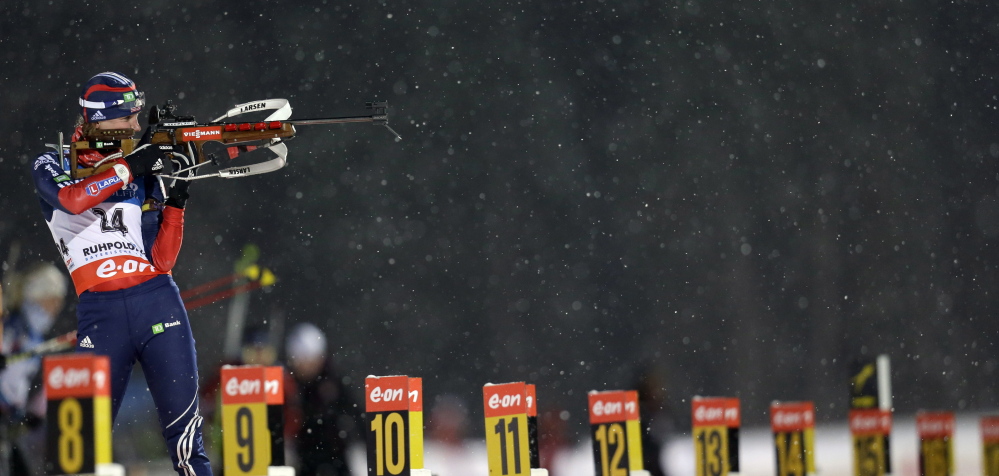
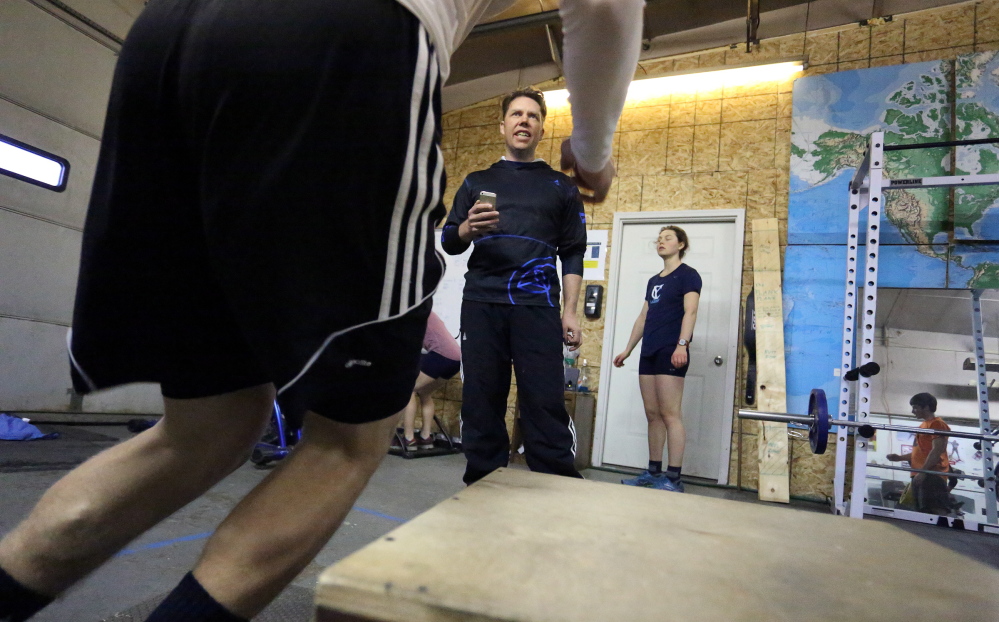
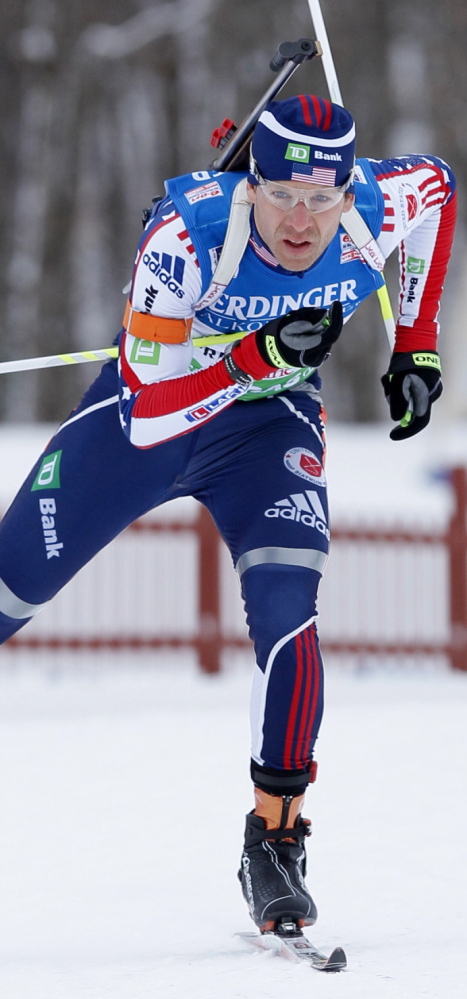
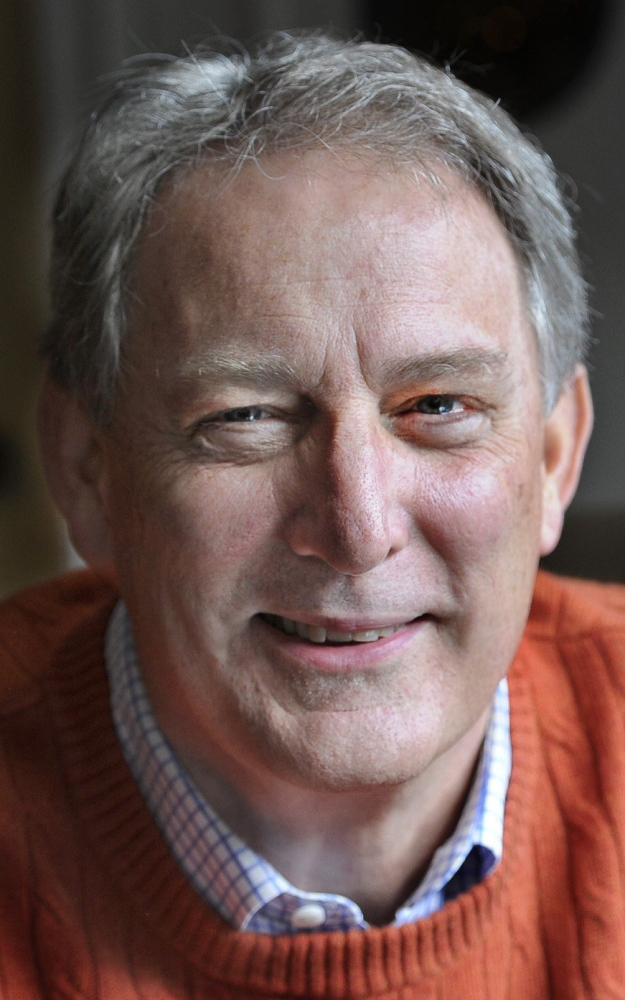
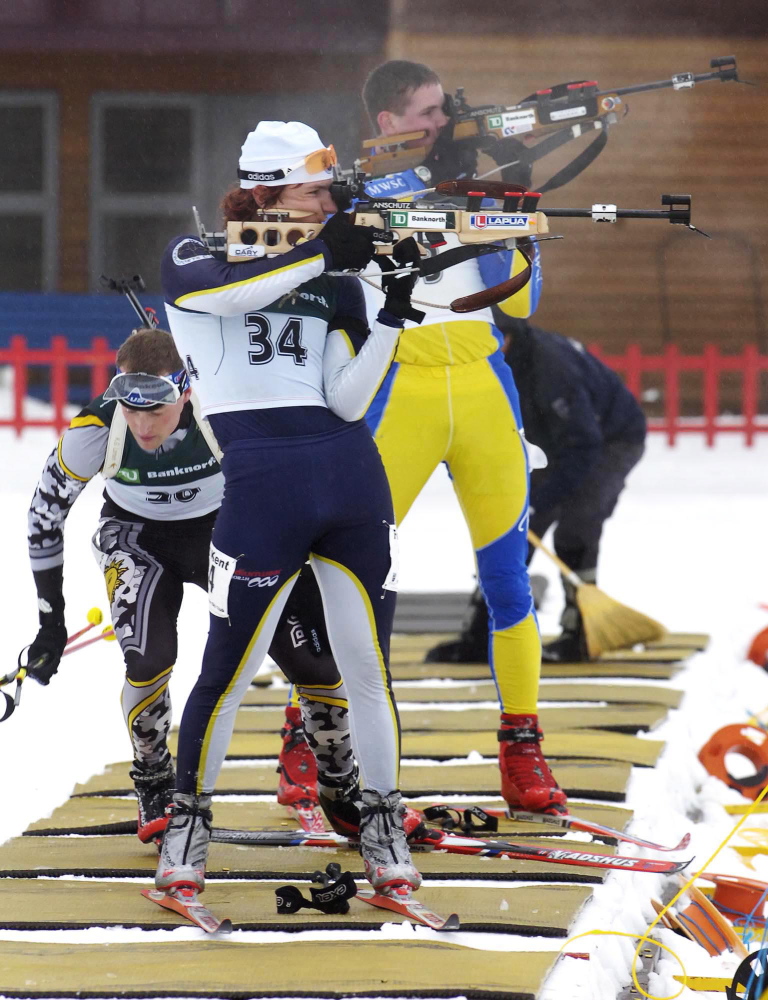

Success. Please wait for the page to reload. If the page does not reload within 5 seconds, please refresh the page.
Enter your email and password to access comments.
Hi, to comment on stories you must . This profile is in addition to your subscription and website login.
Already have a commenting profile? .
Invalid username/password.
Please check your email to confirm and complete your registration.
Only subscribers are eligible to post comments. Please subscribe or login first for digital access. Here’s why.
Use the form below to reset your password. When you've submitted your account email, we will send an email with a reset code.